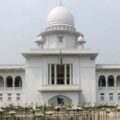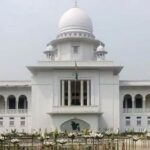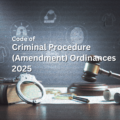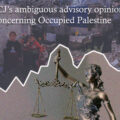1. Introduction
Nowadays the vast majority of armed conflicts are non-international in character. While international law regulates extensively the use of force among states, internal conflicts are beyond the reach of the law in terms of jus ad bellum. Accordingly, non-international armed conflicts (NIACs) are neither lawful nor unlawful under the current legal framework. This article argues in favour of the recognition of a right to remedial rebellion in the exercise of the right to internal self-determination.
2. A right to rebel in the exercise of the right to external self-determination
The current legal framework does not recognise a right to rebel to non-state actors. Nevertheless, in the past there have been instances when the international community has discussed this possibility. Notably, in the 1960s the decolonization process crucially contributed to the emergence of the right to self-determination and triggered debates as to whether national liberation movements (NLMs) had a right to use force against colonial, occupying or racist powers. The Declaration on Principles of International Law concerning Friendly Relations and Co-operation among States in Accordance with the Charter of the United Nations, adopted by the UN General Assembly (UNGA) in 1970 specifies that ‘[e]very State has the duty to refrain from any forcible action which deprives peoples referred to in the elaboration of the principle of equal rights and self-determination of their right to self-determination and freedom and independence.’
While colonial powers and other countries cannot use force against liberation movements, could NLMs recur to forcible action in the exercise of their right to external self-determination? During the decolonization period the international community was divided between the Western block, who maintained that NLMs did not have a right to use force against the colonial power, and developing and socialist countries, which argued that the right to external self-defence could be exercised through forcible action. This divide was reflected in the UNGA resolutions adopted at the time, which remained deliberately vague on the issue. For instance, the resolution on the Implementation of the Declaration on the Granting of Independence to Colonial Countries and Peoples recognises ‘[t]he legitimacy of the struggle by the peoples under colonial rule to exercise their right to self-determination and independence and invites all States to provide material and moral assistance to the national liberation movements in colonial territories.’ The use of the term ‘struggle’, without specifying whether it would include the use of force, is a sign of the internal fracture within the UNGA and the international community.
3. The right to rebel in the exercise of the right to internal self-determination
Outside the decolonization context, the traditional view posits that a people cannot use force in its right to external self-determination. Nevertheless, a number of scholars – such as van den Driest in their book on Remedial Secession: ARight to External Self-determination as a Remedy to Serious Injustices? published by the Cambridge University Press in 2013; Ali Navari and Seyd Ghasem Zamani in their article on ‘The Right to Remedial Secession in the light of National and Regional Judicial Decisions’ – have argued in favour of a right to remedial secession, whereby a people that is a victim of gross and systematic violations of human rights perpetrated by the state would have a right to secede as a remedy against such heinous acts. In already established and independent states, peoples enjoy a right to internal self-determination vis-à-vis their own government. We could thus wonder whether it would be possible to envisage a right to remedial rebellion, namely a right to revolt as a reaction to grave violations of human rights committed against the population or in case of unconstitutional change of power.
While the current legal framework does not suggest that such right exists, a number of constitutions worldwide recognise the existence of the right to rebel. In particular, there are two main instances against which the right to rebel is recognised. First, a number of constitutional texts admit the possibility to rebel against unconstitutional changes of power. For instance, Article 20 paragraph 4 of German Basic Law establishes that ‘[a]ll Germans shall have the right to resist any persons seeking to abolish this constitutional order, if no other remedy is available.’ Similarly, Article 46 of the constitution of Peru acknowledges that ‘[n]o one owes obedience to a usurper government or to anyone who assumes public office in violation of the Constitution and the law. The civil population has the right to rise up in defense of the constitutional order […].’ Second, other instruments recognize the right to revolution against serious violations of human rights. For instance, Article 80 of the constitution of Mozambique reads as follows: ‘[a]ll citizens shall have the right not to comply with orders that are unlawful or that infringe on their rights, freedoms and guarantees.’ Moreover, Article 45 of the constitution of Guatemala recognizes that ‘[t]he opposition of the people to protect and defend the rights and guarantees granted in the Constitution is legitimate.’
At the international level, the Universal Declaration of Human Rights (UDHR) is the only instrument that acknowledges the possibility to rebel. Notably, its preamble mentions that ‘[w]hereas it is essential, if man is not to be compelled to have recourse, as a last resource, to rebellion against tyranny and oppression, that human rights should be protected by the rule of law.’ At least traditionally, a rebel opposes the governmental authority and it is only natural that state authorities are unwilling to recognise the right to be overthrown by armed non-state actors. Nevertheless, it is significant that the UDHR acknowledges such right against ‘tyranny and oppression’, ie against undemocratic governments or governments that commit gross and systematic violations of human rights.
4. Conclusion
In light of the foregoing, it is suggested that, de lege ferenda, the recognition of the right to remedial rebellion should be welcomed. Indeed, it is already recognised in the UDHR and in a number of constitutions worldwide. Furthermore, we may wonder whether it would be pointless to recognize fundamental human rights to individuals, without granting them a right to rebel against violations of such rights.



















No Comments
Leave a comment Cancel